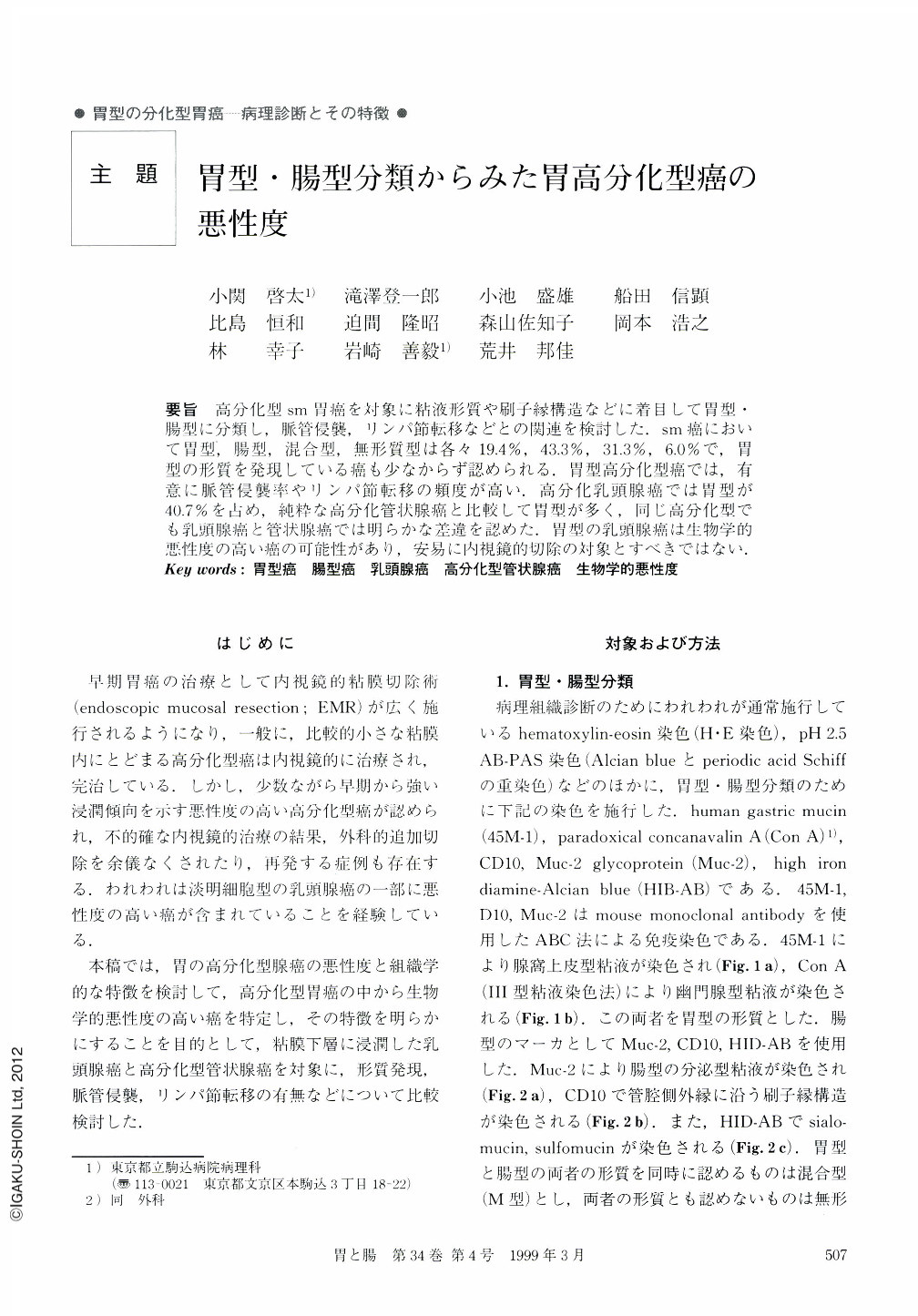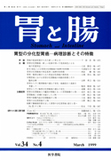Japanese
English
- 有料閲覧
- Abstract 文献概要
- 1ページ目 Look Inside
- サイト内被引用 Cited by
要旨 高分化型sm胃癌を対象に粘液形質や刷子縁構造などに着目して胃型・腸型に分類し,脈管侵襲,リンパ節転移などとの関連を検討した.sm癌において胃型,腸型,混合型,無形質型は各々19.4%,43.3%,31.3%,6.0%で,胃型の形質を発現している癌も少なからず認められる.胃型高分化型癌では,有意に脈管侵襲率やリンパ節転移の頻度が高い.高分化乳頭腺癌では胃型が40.7%を占め,純粋な高分化管状腺癌と比較して胃型が多く,同じ高分化型でも乳頭腺癌と管状腺癌では明らかな差違を認めた.胃型の乳頭腺癌は生物学的悪性度の高い癌の可能性があり,安易に内視鏡的切除の対象とすべきではない.
To investigate its relationship with histology and clinicopathologic factors, well differentiated gastric cancer with submucosal invasion was classified into gastric type (G type), intestinal type (Ⅰ type), mixed gastric and intestinal type (M type), and null type (N type), according to mucin phenotype and development of brush border.
G type was observed in 19.4%, I type in 43.3%, M type in 31.3%, N type in 6.0%, respectively. The incidences of lymphatic invasion, venous invasion, and lymph node metastasis in G type were 92.3%, 76.9%, and 46.2%, respectively, which were significantly more frequent than those of I type. G type was observed in 40.7% of papillary type carcinoma, compared with being found in 5.0% of tubular type, which is a significant difference. These results indicate that there are obvious differences between papillary type and tubular type in biological behavior and malignancy, and G type carcinoma has a pronounced tendency towards invasion and metastasis compared with Ⅰ type. As for the treatment of papillary adenocarcinoma with gastric pheno-type, such a highly malignant potential should always be kept in mind.

Copyright © 1999, Igaku-Shoin Ltd. All rights reserved.


